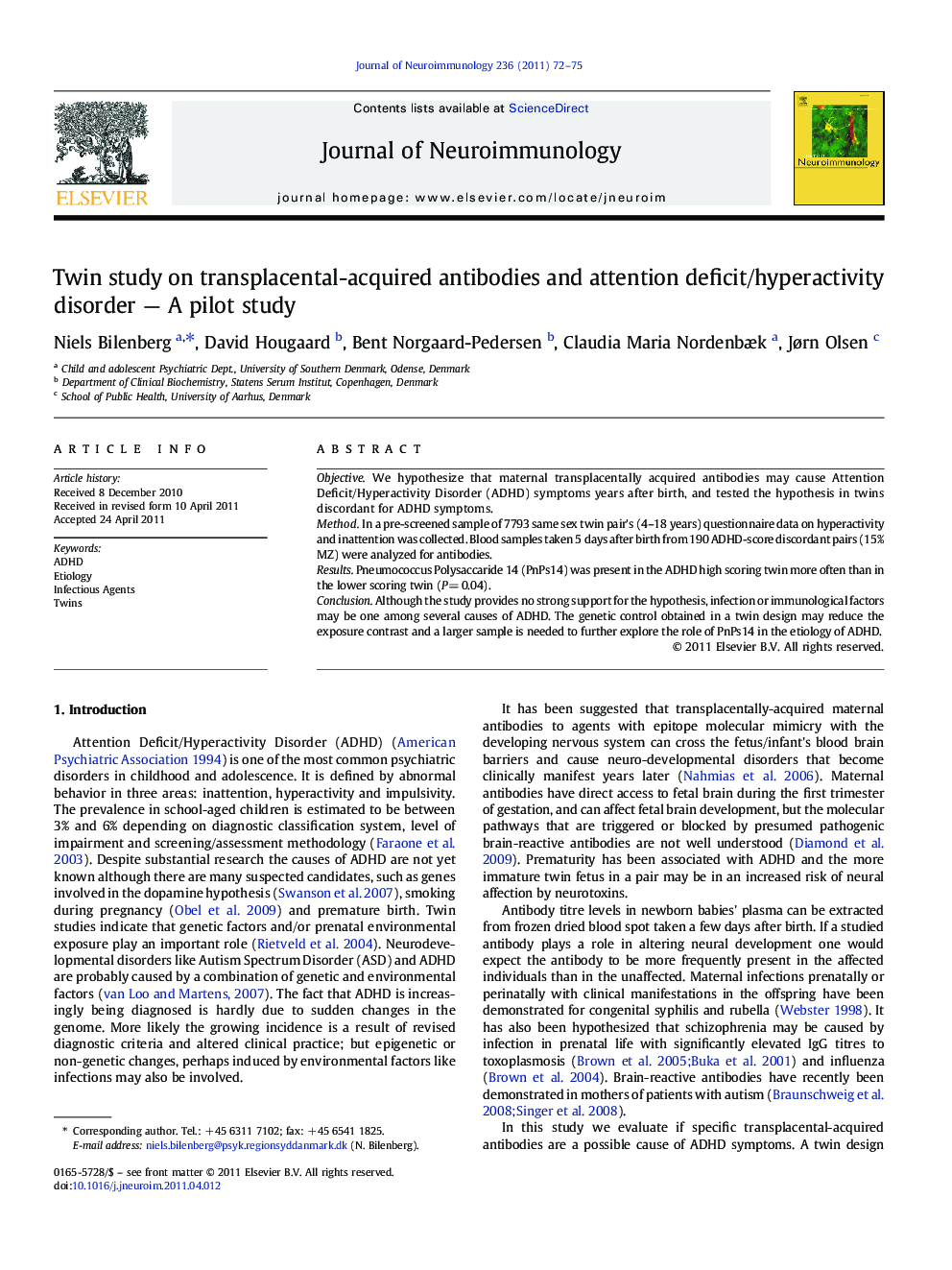| Article ID | Journal | Published Year | Pages | File Type |
|---|---|---|---|---|
| 3064557 | Journal of Neuroimmunology | 2011 | 4 Pages |
ObjectiveWe hypothesize that maternal transplacentally acquired antibodies may cause Attention Deficit/Hyperactivity Disorder (ADHD) symptoms years after birth, and tested the hypothesis in twins discordant for ADHD symptoms.MethodIn a pre-screened sample of 7793 same sex twin pair's (4–18 years) questionnaire data on hyperactivity and inattention was collected. Blood samples taken 5 days after birth from 190 ADHD-score discordant pairs (15% MZ) were analyzed for antibodies.ResultsPneumococcus Polysaccaride 14 (PnPs14) was present in the ADHD high scoring twin more often than in the lower scoring twin (P = 0.04).ConclusionAlthough the study provides no strong support for the hypothesis, infection or immunological factors may be one among several causes of ADHD. The genetic control obtained in a twin design may reduce the exposure contrast and a larger sample is needed to further explore the role of PnPs14 in the etiology of ADHD.
